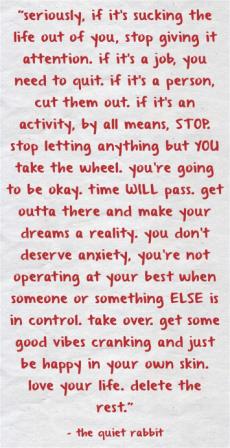How Do You Handle Criticism? You Trust, That’s What You Do.

Whether you’re looking to publish academically or commercially, at some point you’re going to face negative reviews. Really, no matter what you do in life, no matter your goals during or after your university studies, you’re going to face some unpleasant comments. How do you deal with that negativity? There’s negativity everywhere we look, and it’s our task to be stronger than the criticism.
As a PhD student I’m in the process of writing scholarly articles that may well be rejected. As a novelist, I write historical fiction that may not be everyone’s cup of tea. I don’t argue with anyone’s right to dislike my work, and I don’t argue with anyone’s right to share their dislike. I certainly don’t like every book I read. Yet I believe I have the right to choose what kind of energy I want to take in, and I choose to surround myself with positive energy that supports my vision. Yes, I know…that’s a little on the woo woo side. Let me try to be more practical.
It’s easy to understand why we feel so hurt when someone criticizes us. Criticism often feels personal, which is why it’s so easy for that negativity to get under our skin. I used to be hypersensitive about such criticism myself, especially about my writing. Creative writing classes in college were hard for me because there was an unnecessary sting in the feedback from other students. I thought the point of writers workshop was to help each other, not to hurt each other, and I didn’t understand the meanness in the other students’ critiques and I didn’t find those classes useful.
When my first novel was published in 2011, I was known by exactly zero people. I read every review that popped up because I was fascinated by these total strangers who took the time to say things about my book. After a while, I began to realize that the reviews—both good and bad—weren’t about me or even my book. I know that sounds odd, but I believe that negative criticism about anything from your writing to your cooking has more to do with the reviewer than the reviewed. The Write to Done article says as much. If you give two people the same book and one loves it and one hates it, is that about the book or about the people reading the book? When we read, all we have is ourselves—our personalities, our perspectives, our likes, our dislikes, our interests, our emotions, our imaginations—and all of those traits come into play when we read. Sometimes that works in favor of our writing and sometimes it doesn’t. Besides, haven’t you noticed how whenever someone writes negative reviews online, whether it’s for books, restaurants, or whatever, it’s almost always done anonymously under a false name like PookieICU or TinyTom789? Are you going to let Pookie get to you because he (or she) is venting about whatever is actually bothering him (or her)? Even the reviewers for scholarly articles aren’t named–they sound like characters from the Cat in the Hat, only they’re called Reviewer 1 and Reviewer 2 instead of Thing 1 and Thing 2. No one is going to like everything you do. Why let them pull you down? And if someone is simply being honest and they didn’t like your work, it’s okay. I promise—you’ll be fine.
After reading reviews of my own books, both good and bad, I realized I believed in what I was doing, and that was enough. That’s when I stopped reading reviews. It’s not that I don’t care if people like my work. I look at it this way—as long as I have more good reviews than bad, it’s all good. Different people have different tastes. Everything about handling negative criticism boils down to one thing—trust. Trusting yourself, your talent, and your vision. If you believe in yourself no matter the naysayers, then you’ll be able to achieve your dreams.














You must be logged in to post a comment Login